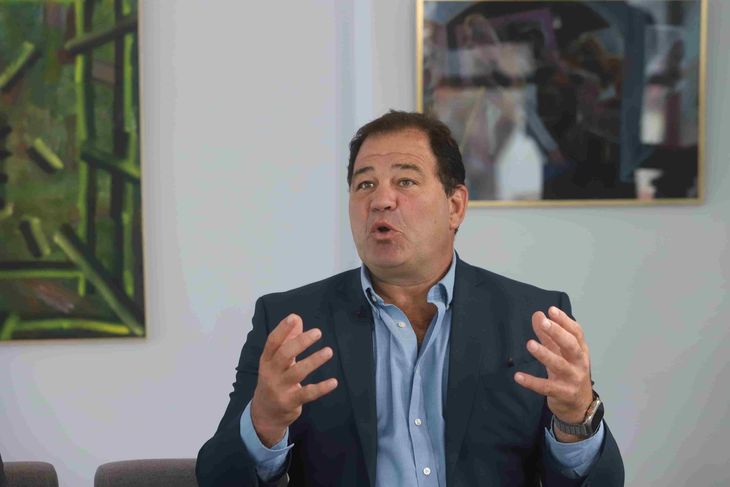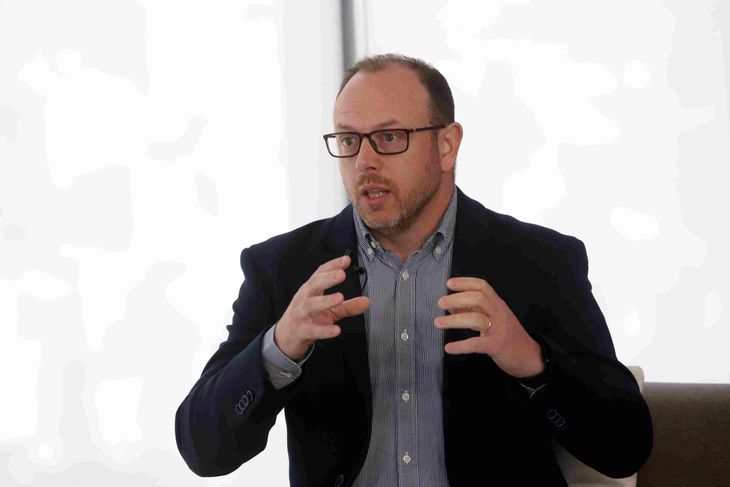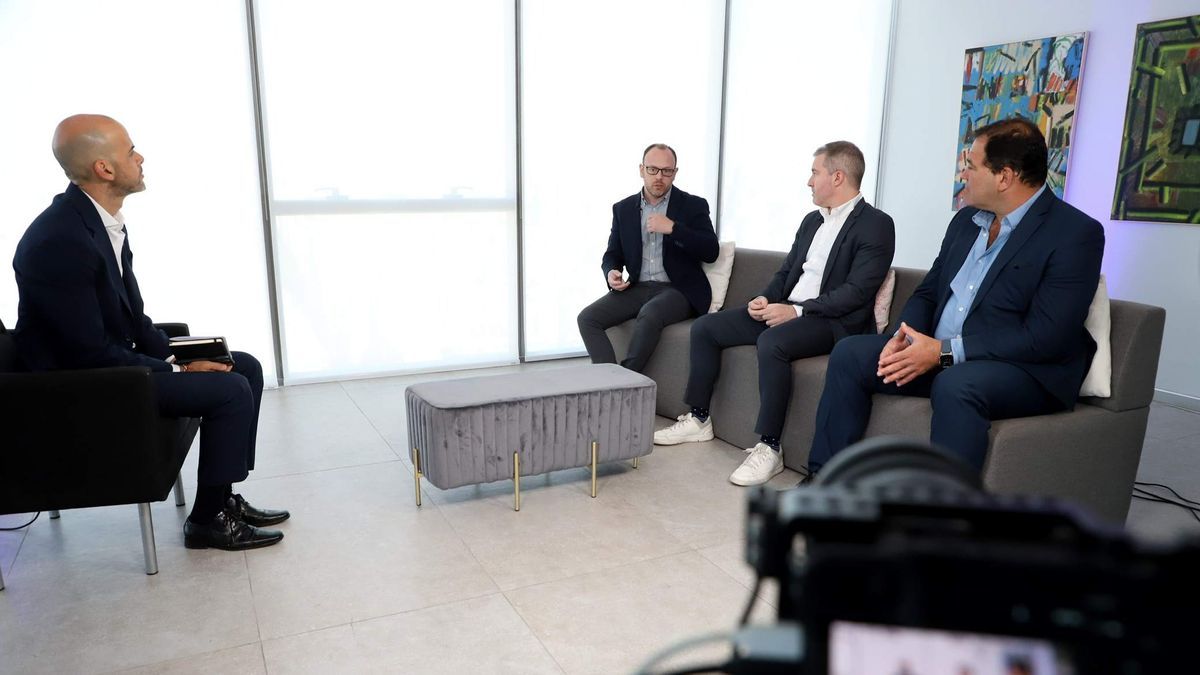In the debit, he raised the fact that “beyond the fact that inflation is being overcome, it is a delicate issue and in the construction sector it has hit hard,” although he acknowledged: “We hope that it will begin to slow down in the future.”
For his part, Brener highlighted Mercado Libre as “the largest platform in Latin America” and described it as “a thermometer of what is happening, with more than 600,000 properties published, connecting buyers and sellers.”
“We see a positive trend of more visits and contacts, with a radical change between 2023 and 2024. repeal of the rental law, “Measures on mortgage credit and money laundering have caused the demand for people who enter the platform to ask questions to grow exponentially and this is later translated into operations,” he assured.
Hugo.jpg
Regarding the benefits of ML, he added: “We have more than 22 million searches and we have big data that allows us to understand what is happening in terms of prices and what the trend change is. Added to that is that more and more real estate agencies and developers are joining the platform.”
In turn, Méndez agreed that there is “a radical change” in the sector and noted: “Mendoza is one of the places that has benefited the most from this change.” because with the RIGI come mining and oil investments and knowledge companies that are growing.”
“We feel it directly from “private investors who realized that, when the foam of inflation goes away, dollars are not a business per se, but rather they melt if you do not invest them,” graphed and, upon noticing a drawback of the current context, he mentioned: “We are concerned that the sale price is in dollars and the cost of construction is in pesos. But I think the melons are going to settle in.”
What happens with prices
Focusing on values, Koifman highlighted that “the price per square meter has been rising, with significant increases” and countered: “Unfortunately in Argentina there is little information because we have information on deeds and the purchase ticket is not public until it is written. But one sees a lot of development In the City of Buenos Aires, on every block there is a new building. There you can see the optimism of the developer and buyer that accompanies it.”
“One interesting thing is that with low rates and inflation, the market changes. The buyer or investor has to look for profitability and the traditional financial market such as a fixed term is not the best of results. So, people go to more sophisticated financial instruments or they go to real deals. “There appears Real Estate, which is a great possibility to be able to get a positive return on money,” he valued.
Federico Mendez.jpg

On that point, he indicated: “A positive issue is that Imports opened up quite a bit and the material cost matrix began to change. On the other hand, the labor component remains a little high and must be stabilized little by little.”
Brener stated that “last year people visited and did not contact, but “Last October there was a substantial growth of 80% in consultations compared to the same month in 2023.” and expressed: “First comes the consultation, then the visit, the negotiation and the closing. When I see this film, I feel optimistic in saying that if contacts grow we see a good indication that the market is going in the right direction.”
In turn, Méndez indicated that “The change from last year to now is incredible” and focused on the concept of predictability. “Before, in two or three weeks the rules of the game would change. We Argentines have the capacity to adapt quickly, but in this new scenario I see that that horizon is beginning to stretch. We start thinking in months, maybe years. And this is important for Real Estate because things are not done quickly,” he explained.
Regarding the future of 2024, he admitted: “We had enormous demand from people who did not know what to do with their money and were looking for good returns. I believe that the distortions will be accommodated, prices will continue to rise and demand will grow proportionally much more. We are living it and we are doing great, but it is only a few months and the idea is for it to be sustainable over time.”
The rise in rents
On the other hand, Koifman referred to the “radical change” in the office sector. “I was always reluctant about the concept that the office had died due to the pandemic. It took a little while, but if it hadn’t happened in the world, why would it happen in Argentina?” he reflected.
And he highlighted: “There were many changes due to remote and hybrid work, but this year companies made the business decision. There were readjustments, companies that reformulated themselves and others that decided to move. If the company decides to hire staff, move the company and invest money, it means that they see the horizon as much more interesting.”
Pabo Brener.jpg

Regarding housing rental, he indicated: “We build residential buildings, we don’t rent, but our clients do. Before they said that they preferred to keep it empty until they sold it and, as a result of the change in the DNU, they can rent it and rest assured that the contracts will be reasonable for both parties. Those who did not want to were able to sell it because the market was reactivated and prices rose. It was a win win for the person who had property and was undecided.”
Along the same lines, Brener maintained that “at Mercado Libre our objective is to connect buyers and sellers and tenants with real estate agencies in this decision that is one of the most important in life” and highlighted that there was “a reactivation in visits, particularly in houses and apartments.”
“We saw a very important change in terms of supply that grew substantially and that made prices adjust. The increase in prices in pesos in CABA was 30%, with inflation that ran to almost 200%. There was an accommodation in pesos of rental prices because one can capture more normal conditions,” he stressed.
Optimism and a positive problem for the future
Looking to the future, Méndez pointed out that Argentina “is heading towards a model where fixed assets are going to be cheaper and easier and property is going to grow in value, because the ceiling is not yet there.”
“To end the optimism, I say the next problem: being able to meet the demand that is going to be generated. We know that construction takes time and if all these variables are improved, we will have to be able to arrive in a timely manner to meet demand. It’s a problem I’d love to have. and we are on that path,” said the Chacras Park representative.
Koifman also expressed his optimistic view by arguing: “Argentines are quite strange creatures. The Real Estate part is done without credit, all with our own money, from investors or clients.”
“The moment credit starts to flourish a little, the change can be enormous. The region is managed with credits for the builder, for the supplier to buy machinery, for the client. That’s starting to happen. If the macro continues to settle down and people continue in a positive mood, very good things are coming. “One is going to dedicate time to ideas for new projects and to take more care of the client, instead of meaningless issues such as importing an elevator or lack of material and people, as happened to us last year,” he expressed.
Finally, Brener stated: “I am super optimistic seeing where we come from and where we are going. We had compressed demand, falling prices, and less supply and today we have rising demand, growing prices and room for them to rise.”
“There are better conditions for people to get a property, be it a mortgage loan, money laundering or the investor who wants to rent and has more flexibility. Also from ML we are going to continue contributing to this mission of helping users find their next home and real estate agencies and developers can close their business,” he concluded.
Source: Ambito
I am a 24-year-old writer and journalist who has been working in the news industry for the past two years. I write primarily about market news, so if you’re looking for insights into what’s going on in the stock market or economic indicators, you’ve come to the right place. I also dabble in writing articles on lifestyle trends and pop culture news.




